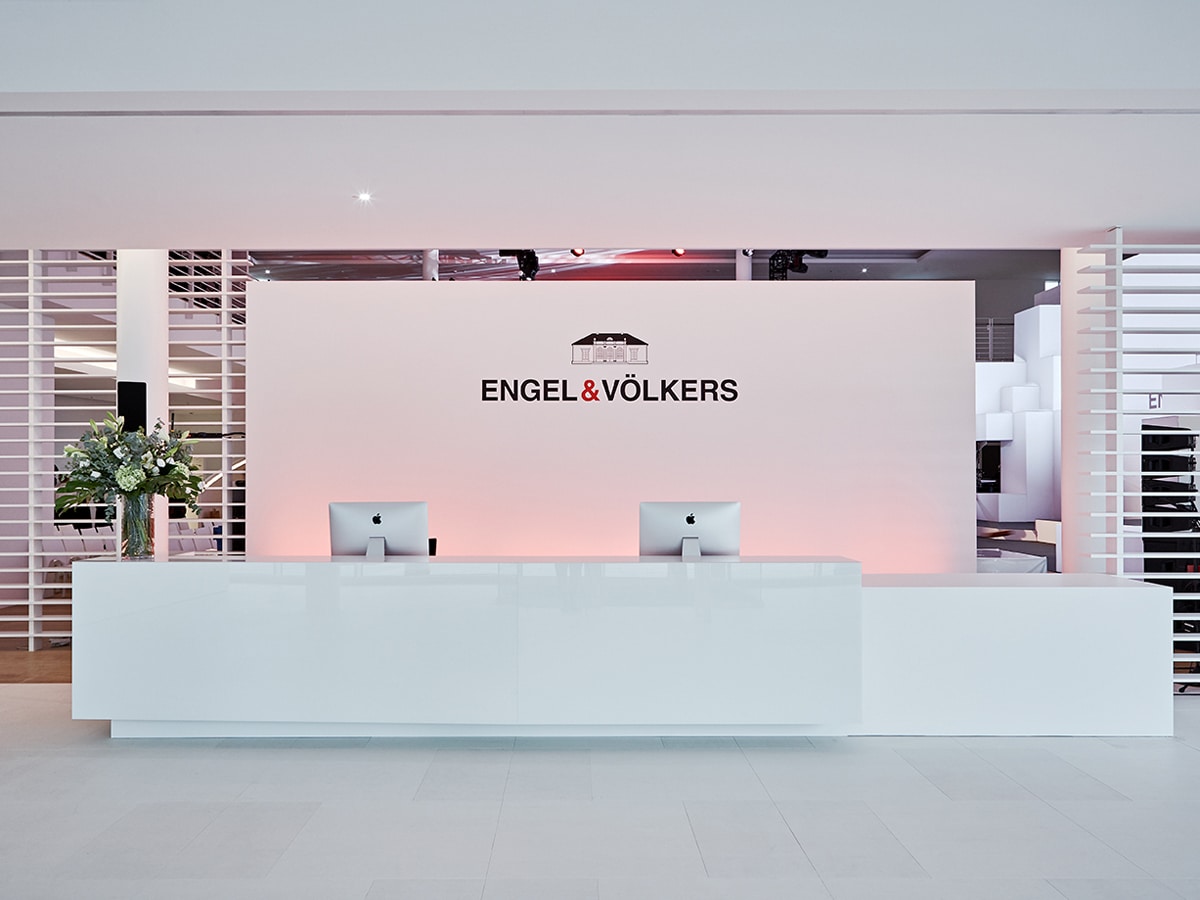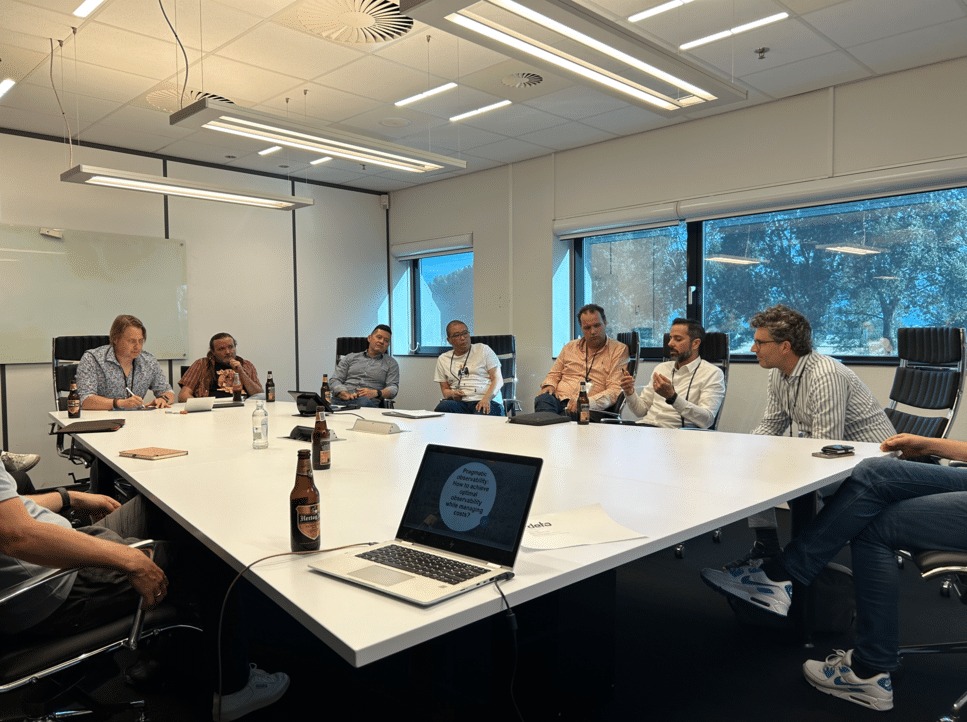We recently spoke with Chris Bell, Director – Global Recruiting and Employer Brand at N26 as part of our #TalentQA series where we interview leaders in talent management and recruitment from a range of businesses from tech startups to well-known fashion brands.
Chris talks about his incredibly interesting career in recruitment, the differences in being a recruiter in the UK vs Germany and reveals some of the strategies that the in-house team at N26 use in order to attract, engage and retain top talent.
Third Republic (TR): Could you explain a bit about your time working recruitment and how you got to where you are today?
Chris Bell (CB): My career started in generalist HR – I worked for ITV in my placement year during my degree and learned so much, but I quickly realised that I preferred the recruitment side of things and the interaction with stakeholders, candidates and hiring managers was something that really motivated me. I pushed ahead with the decision to pursue a career in recruitment and focused on what I needed to do to become successful. After making that decision I worked for a small government watchdog recruiting across the UK, which very quickly saw me become the recruiting manager for 8 sites across the country – a role I stayed in for the first 4 years after graduating.
I fell into a freelance role as a result of 3 watchdogs coming together, it wasn’t something I expected but really took the challenge to support their growth for the first 6 months of their existence. This was a really exciting time in my career and allowed me to project lead the recruitment processes and get an insight into freelance based work. When I left in 2008, I’d been in recruitment for 5 years and was offered a role as Head of Recruitment for a brand new central Government department. At 27 years old I was terrified about the challenge. During my time there, I single-handedly recruited 250 people over a 6-month period. I continued along the path of freelancing and worked for a number of different companies, mostly in a start up phase of their growth. One of those was building out a company from 35 employees and after 2 years I helped grow the team to just under 2000 people. This was the company that made me understand the need to tailor recruitment to hyper growth – probably the biggest challenge in my career until that date.
After a few years of working freelance, I decided that I wanted to setup my own RPO business ‘One for the Job’. I worked as the Founder for 6 and a half years, before deciding that it was time for something new – the role became a sales role and for me that was too distant from my passion for working in recruitment.
I had always had a passion to work in another country and wanted to work for a company that was future focused and innovative. I met with the N26 team in Berlin and joined them initially for a 5-month period to help scale up the business. In all my years of freelancing, N26 are the only company to have convinced me to stay and take a permanent role and the role that is challenging me on a daily basis. Since being with N26 we have experienced 320% growth, receiving on average 12,500 applications each month and on-boarding around 150 people every month of 2019. Our employer brand reach is amazing and it’s great working for such a company that is at the forefront of disrupting the banking industry.
TR: As the founder of your own resource management firm, could you explain some of the benefits and challenges of building a recruitment business from scratch?
CB: The reason I started my agency is because I had worked with a number of RPO agencies throughout my time in recruitment and the majority had flaws that I felt could be fixed easily. I wanted to change this.
We focused on predominantly outsourcing, graduate campaigns and consultancy. As time went on, I worked with a range of companies across the public and private sectors to enhance their recruitment functions, campaign management and employer brand.
The role eventually became much more sales focused and after 6 and a half years, I decided I wanted to move back to an in-house role, where my passion for recruitment could continue. It was an experience that I loved being a part of and one that certainly enhanced my career and experience.
TR: Going from recruiting in the UK to Germany could you talk about some of the key differences you have recognised between the two?
CB: There are more similarities than you might think – we are all focused on the same thing to find the right people for the roles we have vacant. What I have noticed is that in the UK, recruitment functions aren’t seen as a real strategic partner to the business. In Germany recruitment teams are encouraged to get involved in C-level executive decisions and we form part of strategic workforce decisions at all times. The recruitment function at N26 has a lot of respect and engagement across the whole business.
There’s also a much more in-house focus in terms of recruiting in Germany. Businesses focus on having more strategic and larger in-house teams than the outsourcing model seen in the UK. Having a strategic team in-house definitely helps to drive innovation and relationship management, which improves productivity and candidate experience.
TR: Throughout your time in recruitment, have you noticed changes in candidate behaviours?
CB: I think the biggest change I’ve noticed has been the shift to a candidate driven market – earlier in my career, the market was definitely driven more by the company. It has been a steady change, but with the emergence of social media and review sites such as Glassdoor, the way in which candidates find work has become much more passive. There are certainly more, well-founded, demands from candidates when it comes to their experiences as a candidate. Personally, I think this is a good thing as it will continue to mean that both in-house and agency recruiters will have more pressure to keep on top of their game, to understand those demands and to tailor their approach to suit the needs of the candidate.
I have also noticed a change in how businesses view their in-house recruitment teams. Once the recruitment function was seen as a service provider and now we are definitely seen as a strategic growth partner.
TR: If so, how do you think businesses can best react to these changes?
CB: To counteract this change in behaviour, it is important to make processes quick, flexible, targeted and personal. It’s more important now than ever to meet candidates demands throughout the interview process. Ensure you are as flexible as possible.
Using the right tools is also key. The introduction of new recruitment tech is definitely raising the bar for us. For example, the introduction of gamification tools can make decisions easier for hiring managers based on the assessment of candidate behaviour. Also, always keep an eye on the market, businesses are closing or downsizing and that is an opportunity for partnership. We worked with candidates in both Uber and Booking.com when they were making redundancies – those candidates were strong in terms of skills and we wanted to offer them an opportunity to work with us, a situation that was a benefit to both N26 and the individuals involved. We ran creative and speedy assessment centres and ended up making a number of hires from this specific targeting.
I’d say it’s important not only concentrate on talent in the city that you operate in – make your reach far and wide to attract and identify the best talent for you. At N26 we have over 75 nationalities – that’s an incredible achievement and one which we are very proud of. Top talent won’t wait for you, so you have to be open to looking outside of your area and willing to sponsor talent. Be honest and transparent about what it’s like to work for your company and give as much information as you can so that candidates can decide whether your business and role is right for their personal growth.
TR: What sort of strategies do you adopt in terms of attracting, engaging and securing talent at N26?
CB: This is relatively difficult to answer as I believe that strategies need to reach far and wide, but should also be specific to the type of roles you are recruiting. There isn’t a one size fits all solution. You need to think of what will work for your business. It’s important to be adaptable to the changes in recruitment, without feeling the need to use all technologies. Try to focus on implementing things that will support growth and make life easier for you and your teams. For example, we use an AI scheduling tool that takes away the administration of having to book in candidate interviews, it is simple to use and is favoured by recruiters and candidates for its speed. This allows us more time to focus on driving growth, candidate experience and identifying the right talent for the roles we have open.
Finally, employer brand is essential. You need to create something that speaks for you. If you operate or are looking for talent internationally, it’s important to target your employer brand campaigns to each region. Along a similar path, I’d also say it’s important to have a future talent focus. Specifically, when you’re going through hyper-growth, don’t forget to focus on graduate and training programs as this can support you significantly in the future. I am building an internal coding academy at N26 to have our own pipeline of future talent, while providing training and expertise to the people that are selected to take part. By introducing strategies like this, businesses will help to close the skills gap and build a future proof and engaged workforce.
TR: Could you explain some of the biggest changes that you have seen throughout your time working in recruitment?
CB: At the start of my career around 17 years ago, I was still receiving paper applications. However, the introduction of the internet and social media has completely changed the industry and the way we operate. Social Media has definitely been the biggest influence since I started out. As I said earlier, it is also a more candidate driven market, which has ultimately meant that the recruitment industry is working harder on improving delivery and quality.
With the introduction of the many technical tools for recruitment including AI and gamification, sourcing tools etc., some businesses have found it difficult to keep up. It’s important for recruitment teams to understand their businesses and what tools will actually enable them to be more productive and provide a better service.
TR: Looking forward, do you think the rise in digital and technology will continue to influence and alter the industry?
CB: The simple answer is yes. It’s something we have to embrace and work with. We need to adapt and implement technologies that will make us better. Saying that I believe that there will always be a human element – I can’t imagine a world where human intervention will be removed from the recruiting process. If the processes were automated it would become difficult to find a genuine cultural fit.
Cultural fit is becoming more and more important to both candidates and businesses in the job market. So, of course it will continue to affect our industry. I see this as a positive thing as long as we use the technologies in a way that will improve our work and our efficiency, then it should always be welcomed.
TR: Finally, what advice would you offer to talent professionals in order to keep up to date with the ever-evolving world of recruitment?
CB: Everybody working in the industry needs to get involved in the changes and embrace that to further improve what we do. In order to keep on top of your game, attend conferences and networking events, join recruitment communities, get involved in the industry that your business operates in. It’s so important to be a specialist in the market you are operating in and to understand the differences in candidate behaviours and needs.
Also, don’t think that every new technology will work for you – be selective and choose those that will enhance your work. Test things out and implement tools that you believe in. Not everything will work for your business, so make sure that you really understand the business needs before implementing new technologies and tools. Use both positive and negative situations and reviews to shape your work – candidate feedback is a gift that we should all embrace to support what we do.
If you’d like to take part in our #TalentQA series or you’re looking to source technical talent, get in touch today!




